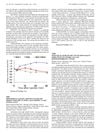Search
for
Sort by
Research
30-60 / 1000+ results
research Is COVID-19 a Risk Factor for Progression of Benign Prostatic Hyperplasia and Exacerbation of Its Related Symptoms?: A Systematic Review
COVID-19 might worsen symptoms and progression of benign prostatic hyperplasia, possibly due to inflammation and metabolic disturbances in the prostate gland. More research is needed to confirm this.

research 5-Alpha Reductase Inhibitors: New Evidence on Benefits and Harms Beyond Benign Prostatic Hyperplasia
5-alpha reductase inhibitors may have additional effects on cancer, mental health, heart health, and hormone levels beyond treating prostate enlargement.

research Androgens Trigger Different Growth Responses in Genetically Identical Human Hair Follicles in Organ Culture Reflecting Their Epigenetic Diversity in Life
Male hormones cause different growth in identical human hair follicles due to their unique epigenetic characteristics.

research Anti-Inflammatory and Anti-Hyperplastic Effect of Bazhengsan in a Male Rat Model of Chronic Nonbacterial Prostatitis
Bazhengsan reduces inflammation and tissue growth in chronic prostatitis.

research Long-Term Safety and Efficacy of Mirabegron and Solifenacin in Combination Compared with Monotherapy in Patients with Overactive Bladder: SYNERGY II Study
Using mirabegron and solifenacin together is safe and more effective for treating overactive bladder than using either drug alone.

research Inhibitory Effects of Pueraria Mirifica Aqueous Extracts on 5α-Reductase and Prostate Histomorphometry in Testosterone-Induced Benign Prostatic Hyperplasia Sprague Dawley Rats
Pueraria mirifica extract may help treat benign prostatic hyperplasia.

research Endocrine Treatment of Benign Prostatic Hypertrophy: Current Concepts
New hormonal treatments for enlarged prostate show promise for safer, effective non-surgical options.

research Administration of Caesalpinia Bonduc Seed Extracts Ameliorates Testosterone-Induced Benign Prostatic Hyperplasia in Male Wistar Rats
Caesalpinia bonduc seed extracts may help treat enlarged prostate in rats.

research Negative Impact of Testosterone Deficiency and 5α-Reductase Inhibitors Therapy on Metabolic and Sexual Function in Men
Low testosterone and 5α-reductase inhibitors can harm men's metabolic and sexual health; testosterone therapy may help, but discussing 5α-RIs' side effects is important.

research The 5 Alpha-Reductase Isozyme Family: A Review of Basic Biology and Their Role in Human Diseases
The document concludes that the 5 alpha-reductase enzymes are important in steroid metabolism and related to various human diseases, with inhibitors used to treat conditions like male pattern baldness and prostate issues.

research Neuroendocrinology of Epithelial Hair Follicle Stem Cells
Hormones and neuroendocrine factors control hair growth and color, and more research could lead to new hair treatment options.

research Circulating and Intraprostatic Sex Steroid Hormonal Profiles in Relation to Male Pattern Baldness and Chest Hair Density Among Men Diagnosed with Localized Prostate Cancers
Baldness in men with prostate cancer is linked to higher levels of certain sex hormones, but chest hair density is not.

research Design, Synthesis and Anti-Tumor Evaluation of Novel Thiohydantoin Congeners as Androgen Receptor Antagonists With In Vivo Study
A new compound, 3a, effectively fights prostate cancer better than finasteride.
research Role of 5 Alpha-Reductase Inhibitors in the Management of Prostate Cancer
5 alpha-reductase inhibitors like finasteride may lower prostate cancer risk and improve cancer screening.
research Does Treatment with Dutasteride or Finasteride Have Impact on Renal Morphology? Experimental Study
Dutasteride and finasteride cause kidney damage, with dutasteride being more harmful.
research Pre-Receptor Regulation of the Androgen Receptor
Two enzymes regulate androgen receptor activity, affecting treatments for androgen insufficiency and benign prostatic hyperplasia.

research Expression and Cellular Localization of Keratinocyte Growth Factor and Its Receptor in Human Hyperplastic Prostate Tissue
KGF and its receptor are found in enlarged prostate tissue and KGF strongly increases cell growth.

research Species Differences in Prostatic Steroid 5α-Reductases of Rat, Dog, and Human
Different animals have unique versions of the enzyme that changes testosterone into another hormone, which is important for creating effective treatments for prostate and hair loss conditions.

research Efficacy and Side Effects of Drugs Commonly Used for the Treatment of Lower Urinary Tract Symptoms Associated With Benign Prostatic Hyperplasia
Different drugs for prostate-related urinary symptoms work but have various side effects, and treatment should be tailored to the individual.

research Ganoderma Lucidum as an Inhibitor of Testosterone-Induced Prostatic Hyperplasia in Rats
Ganoderma lucidum may help treat enlarged prostate in rats.

research 5α-Reductase Inhibitors and Prostatic Disease
5α-Reductase inhibitors can help treat hair loss, acne, and prostate issues by reducing DHT levels.

research Finasteride for Prostatic Disease: An Updated and Comprehensive Review
Finasteride helps treat prostate issues and may prevent prostate cancer in high-risk men.

research Effect of Citrullus Colocynthis Schrad on Testosterone-Induced Benign Prostatic Hyperplasia
Citrullus colocynthis fruit extract and its compound may help treat enlarged prostate.

research Induction of Secreted WNT Factor WISP1/CCN4 by Human Prostate Stromal Cells Under Microenvironmental Hypoxia
Human prostate cells produce more WISP1/CCN4 when there's not enough oxygen.

research Three-Month Treatment With a Long-Acting Gonadotropin-Releasing Hormone Agonist of Patients With Benign Prostatic Hyperplasia: Effects on Tissue Androgen Concentration, 5α-Reductase Activity and Androgen Receptor Content
A three-month treatment with a GnRH agonist significantly lowered androgen levels and 5α-reductase activity in men with benign prostatic hyperplasia.

research Steroidal 5α-Reductase and 17α-Hydroxylase/17,20-Lyase (CYP17) Inhibitors Useful in the Treatment of Prostatic Diseases
Certain drugs that block specific enzymes can help treat prostate diseases.

research Benign Prostatic Hyperplasia: A Disorder of Androgen Metabolism in Males
Benign Prostatic Hyperplasia may be caused by changes in how the body processes male hormones.

research Finasteride and Erectile Dysfunction in Patients with Benign Prostatic Hyperplasia or Male Androgenetic Alopecia
Finasteride may increase erectile dysfunction risk in patients with benign prostatic hyperplasia.

research Alpha-Spinasterol from Melandrium Firmum Attenuates Benign Prostatic Hyperplasia in a Rat Model
α-spinasterol from Melandrium firmum can help reduce prostate enlargement.